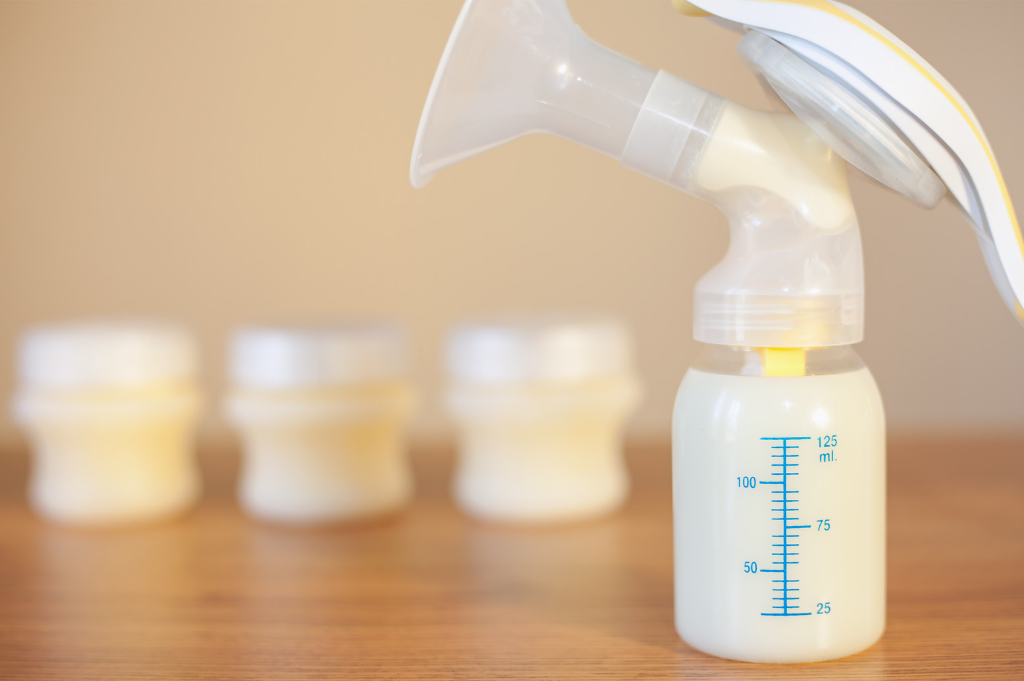
Premature infants need breast milk more than most. But because most babies aren’t developmentally ready to nurse until they are 34-35 weeks gestation, they rely on pumped breast milk for their nutrition and delivery of these vital nutrients. We consulted the experts – current and past NICU moms, NICU nurses and lactation consultants – for their best pumping tips.
Pumping breast milk becomes a regular way of life for many NICU moms. It’s a way for babies to receive the nutrition they need, it’s and a way for moms to feel like they are actively participating in their baby’s care. “I felt like I couldn’t do much for my babies while they were in the NICU,” says preemie twin mom Ali. “But I could pump. So that’s what I did.”
Pumping Tips for NICU Moms
Getting started – establishing your supply
● Ask to see a lactation consultant as soon as possible. The consultant will introduce you to the pump, ensure you have the proper flange fit and learn to assemble your pump parts and navigate the pump settings.
● Pump with a photo of your child nearby. Listen to soft music. Relaxing will encourage your milk flow.
● Keep snacks and water handy when you pump. You will get very hungry and thirsty!
● Leaving the hospital? Ask a lactation consultant or social worker about renting a hospital-grade pump to use at home. If your hospital does not directly rent them, there should be businesses in your area who do.
Organizing your pump parts
● Ask for or purchase a second (or third!) set of pump parts. Being able to rotate clean parts reduces stress over constant washing, especially when you’re pumping eight or more times per day. Reserve a set for home and a set for your pumping bag, especially if you are pumping at work.
● Use dishwasher baskets to hold your pump parts and other baby-safe equipment.
● Many moms recommend placing your used pump parts in a zipper bag in the fridge when not in use. This reduces the stress of having to wash parts in the middle of the night or first thing in the morning, and it also reduces stress for working moms who may want to reduce the amount of time spent on the pumping process.
Establish a routine
● Remember that breast milk production is supply and demand. Pumping for 10-15 minutes every three hours will signal your body to produce more than pumping for 30 minutes every six hours.
● Stay consistent and hydrated!
● Pair pumping with something relaxing you love to do, like watching a favorite show (especially at night!), listening to a podcast or reading. It’s nice to have something to look forward to, especially for those late or middle of the night pumping sessions!
● Keep a manual pump in your car or in your diaper bag. It might come in handy if you find yourself stuck in traffic or away from your electric pump due to unexpected circumstances.
● Talk to your doctor and your lactation consultant about your sleep needs. “My OB recommended having one 4-hour stint of sleep at night to get a full REM cycle in, and then pumping,” says preemie mom Rachel A. “I felt much better with the additional hour of sleep. My LC agreed it would be helpful and “allowed” it, but I had to be good about continuing to pump seven more times throughout the day.”
Get comfortable
● Apply warm compresses and lactation massage. They can help make your sessions shorter and more productive.
● Stock up on nursing pads and nipple cream.
● Invest in a pumping bra. A good pumping bra allows you to have your hands free to operate your pump and reduces the chance of spills while dealing with bottles or bags of expressed milk. Moms who pump for extended amounts of time love the ability to multitask while pumping.
● A car adapter allows you to plug your electric pump right into your car so you can pump on the go if necessary.
Pumping tips from moms who’ve been there
● Remind yourself that pumping is temporary. There will be an end to all the washing, sanitizing, lugging a pump around and waking up to pump. — Veronica S.
● Understand that it’s okay if pumping doesn’t work out for you. See a lactation consultant if you need help. — World’s Okayest Mom
● Ask for help early! Even if it’s just for reassurance that you’re doing everything right. — Faith W.
